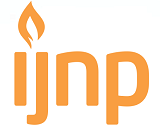Perceived Incivility and Stress of Final Year Nursing Students
DOI:
https://doi.org/10.18196/ijnp.v6i2.16751Keywords:
incivility, nursing, stress, studentAbstract
Background: Incivility is disruptive behavior that can cause physiological or psychological distress to those involved. It can escalate into a potentially dangerous situation, such as serious suicidal tendencies and engaging in self-injury if left untreated. Incivility can be caused by various factors, one of which is stress.
Objective: This study aims to examine the relationship between incivility and stress among final-year nursing students.
Method: This study employed a quantitative research method using a correlation approach. It utilized simple random sampling. The data were analyzed using descriptive statistics and the Spearman rank test. The instruments included the INE-R/Incivility in Nursing Education-Revision (Cronbach Alpha 0.881-0.876) and the PSS/Perceived Stress Scale (Cronbach Alpha 0.684). This study recruited 200 students, the majority of whom were female (87.5%).
Result: This study revealed students' perceived levels of incivility (Mean 20.93, SD 6.67); perceived frequency of incivility (Mean 18.01, SD 5.18); and perceived stress (Mean 22.01, SD 4.01). Additionally, this study discovered significant relationships between students' perceived levels of incivility and stress (p-value 0.010, r 0.283) and their perceived frequency of incivility and stress (p-value 0.001, r 0.269).
Conclusion: Incivility has been associated with stress levels in nursing students. Nursing education must foster a positive learning environment. This study provided evidence for a correlation between incivility and stress in nursing students transitioning from blended to fully online learning due to the Covid-19 pandemic.
References
Clark, C. M. (2019). Fostering a Culture of Civility and Respect in Nursing. Journal of Nursing Regulation, 10(1), 44–52. https://doi.org/10.1016/S2155-8256(19)30082-1
Clark, C.M. (2017). Creating and sustaining civility in nursing education (2nd ed.). Indianapolis, IN: Sigma Theta Tau International.
Clark, Cynthia M., Barbosa-Leiker, C., Gill, L. M., & Nguyen, D. (2015). Revision and psychometric testing of the incivility in nursing education (INE) survey: Introducing the INE-R. Journal of Nursing Education. https://doi.org/10.3928/01484834-20150515-01
Clark, Cynthia M., & Ritter, K. (2018). Policy to foster civility and support a healthy academic work environment. Journal of Nursing Education. https://doi.org/10.3928/01484834-20180522-02
de Swardt, H. C. (Rina), van Rensburg, G. H., & Oosthuizen, M. J. (2017). Supporting students in professional socialisation: Guidelines for professional nurses and educators. International Journal of Africa Nursing Sciences, 6, 1–7. https://doi.org/10.1016/j.ijans.2016.11.002
Eka, N. G. A., & Chambers, D. (2019). Incivility in nursing education: A systematic literature review. Nurse Education in Practice, 39(January), 45–54. https://doi.org/10.1016/j.nepr.2019.06.004
Eka, N. G. A., Chambers, D., & Narayanasamy, A. (2016). Perceived uncivil behaviour in Indonesian nursing education. Nurse Education in Practice, 20, 98–108. https://doi.org/10.1016/j.nepr.2016.07.007
Fahri, M., & Musharyanti, L. (2022). Nursing Students’ Perception on Tutor Performance and Students’ Critical Thinking in PBL Online. IJNP (Indonesian Journal of Nursing Practices). https://doi.org/10.18196/ijnp.v5i2.13349
Hong, E., Lee, H., Dee, V., & Kim, Y. (2018). Relationships between incivility and stress and self-efficacy among nursing students in clinical settings. International Journal of Healthcare. https://doi.org/10.5430/ijh.v5n1p16
Huang, N., Qiu, S., Alizadeh, A., & Wu, H. (2020). How incivility and academic stress influence psychological health among college students: The moderating role of gratitude. International Journal of Environmental Research and Public Health, 17(9). https://doi.org/10.3390/ijerph17093237
Muliira, J. K., Natarajan, J., & Van Der Colff, J. (2017). Nursing faculty academic incivility: Perceptions of nursing students and faculty. BMC Medical Education, 17(1), 1–11. https://doi.org/10.1186/s12909-017-1096-8
Nodeh, Z. H., Tayebi, Z., Aghabarary, M., & Tayebi, R. (2020). Nursing students’ experiences of faculty incivility: A qualitative exploratory study. Nursing Practice Today. https://doi.org/10.18502/npt.v7i2.2735
Park, E. J., & Kang, H. (2020). Nurse educators’ experiences with student incivility: A meta-synthesisofqualitativestudies. Journal of Educational Evaluation for Health Professions. https://doi.org/10.3352/JEEHP.2020.17.23
Polit, D. ., & Beck, C. . (2018). Essentials of Nursing Research: Appraising Evidence for Nursing Practice: Appraising evidence for nursing practice. In Wolters Kluwer.
Purnami, C. T., & Sawitri, D. R. (2019). Instrumen “ Perceive Stress Scale ” Online Sebagai Alternatif Alat Pengukur Tingkat Stress Secara Mudah Dan Cepat. Seminar Nasional Kolaborasi Pengabdian Kepada MAsyarakat UNDIP-UNNES.
Rawlins, L. (2017). Faculty and Student Incivility in Undergraduate Nursing Education: An Integrative Review. Journal of Nursing Education, 56(12), 709–716. https://doi.org/10.3928/01484834-20171120-02
Rumerung, C. L., Eka, N. G. A., & Tahulending, P. S. (2022). Perilaku Model Peran Profesional dalam Pendidikan Keperawatan Indonesia. Malahayati Nursing Journal, 4(7).
Sauer, P. A., Hannon, A. E., & Beyer, K. B. (2017). Peer Incivility among Prelicensure Nursing Students: A Call to Action for Nursing Faculty. Nurse Educator, 42(6), 281–285. https://doi.org/10.1097/NNE.0000000000000375
Small, S. P., English, D., Moran, G., Grainger, P., & Cashin, G. (2019). “Mutual Respect Would be a Good Starting Point:” Students’ Perspectives on Incivility in Nursing Education. The Canadian Journal of Nursing Research = Revue Canadienne de Recherche En Sciences Infirmieres. https://doi.org/10.1177/0844562118821573
Smith, J. G., Urban, R. W., & Wilson, S. T. (2022). Association of stress, resilience, and nursing student incivility during COVID-19. Nursing Forum, (July 2021). https://doi.org/10.1111/nuf.12694
Tahulending, P. S., Eka, N. G. A., & Purbojo, R. (2021). Blended learning to promote professional behavior during the covid-19 pandemic: A pilot study. Bali Medical Journal. https://doi.org/10.15562/bmj.v10i3.2812
Urban, R. W., Smith, J. G., Wilson, S. T., & Cipher, D. J. (2021). Relationships among stress, resilience, and incivility in undergraduate nursing students and faculty during the COVID-19 pandemic: Policy implications for nurse leaders. Journal of Professional Nursing. https://doi.org/10.1016/j.profnurs.2021.08.011
Vuolo, J. C. (2017). Student nurses’ experiences of incivility and the impact on learning and emotional wellbeing. Journal of Nursing Education and Practice. https://doi.org/10.5430/jnep.v8n4p102
Zhu, Z., Xing, W., Lizarondo, L., Guo, M., & Hu, Y. (2019). Nursing students’ experiences with faculty incivility in the clinical education context: a qualitative systematic review and meta-synthesis. BMJ Open. https://doi.org/10.1136/bmjopen-2018-024383
Downloads
Additional Files
Published
Issue
Section
License
License
Articles published in the IJNP (Indonesian Journal of Nursing Practices) are licensed under a Attribution 4.0 International (CC BY 4.0) license. You are free to:
- Share — copy and redistribute the material in any medium or format.
- Adapt — remix, transform, and build upon the material for any purpose, even commercially.
This license is acceptable for Free Cultural Works. The licensor cannot revoke these freedoms as long as you follow the license terms. Under the following terms:
Attribution — You must give appropriate credit, provide a link to the license, and indicate if changes were made. You may do so in any reasonable manner, but not in any way that suggests the licensor endorses you or your use.
- No additional restrictions — You may not apply legal terms or technological measures that legally restrict others from doing anything the license permits.
Copyright
Authors who publish with IJNP (Indonesian Journal of Nursing Practices) agree to the following terms:
- Authors retain copyright and grant IJNP (Indonesian Journal of Nursing Practices) the right of first publication with the work simultaneously licensed under an Attribution 4.0 International (CC BY 4.0) that allows others to remix, adapt and build upon the work with an acknowledgment of the work's authorship and of the initial publication in IJNP (Indonesian Journal of Nursing Practices).
- Authors are permitted to copy and redistribute the journal's published version of the work (e.g., post it to an institutional repository or publish it in a book), with an acknowledgment of its initial publication in IJNP (Indonesian Journal of Nursing Practices).














